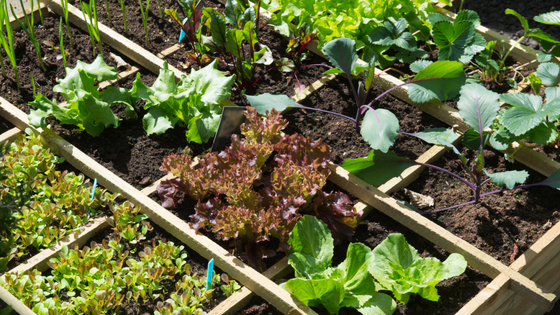
This book will show you how to grow delicious and nutritious vegetable plants. It will show you how to grow the best vegetables and fruits, and also how to preserve them. This book will guide you in choosing the right plants to grow the best veggies. The author Colin McCrate offers a wealth of information and breaks down the different garden sizes and their benefits. This book includes helpful charts, tables, schedules, and worksheets that will help you grow the best veggies.
This book contains detailed information about 75 fruits, vegetables, and more. The book also includes helpful illustrations and photos. It covers everything, from planting seeds to harvesting and watering. This guide is great for novice gardeners because it shows how to grow different varieties of plants in different settings. This guide is also great for reference, as it includes sections on how you can create raised beds or container gardens and how to protect your plants. It also features a complete listing of all the produce varieties that can grown in your area.

Michael Pollan's The Vegetable Gardener's Bible is another great book on vegetable gardening. It describes how to produce delicious vegetables. It provides information on four key principles and describes various methods of growing great vegetables. The author also provides advice on harvesting and winter gardening. It is a must-have book for vegetable gardeners who love vegetables and want to grow them.
The Old Farmer's Almanac was a staple for gardeners over the centuries. It is a must-have for beginners as it is the best vegetable gardening book available. It covers the best ways to grow vegetables and shows you how to avoid pests. The Old Farmer's Almanac covers more than just vegetables and uses a century of food growing knowledge to help you succeed.
There are many great vegetable gardening books, but The Vegetable Gardening Book provides a comprehensive guide that is ideal for beginners. The authors make it easy to follow and explain everything in a detailed, yet understandable manner. It's also a great resource to seasoned gardeners. This book, which contains over 60 recipes, is a must have for vegetable gardeners. Anyone looking to improve their cooking skills will find the Vegetable Gardening Book a valuable resource.

An experienced gardener can write the best beginner vegetable gardening book. An experienced gardener will not only know the best plants, but also how they should be cared for. An introduction should be included in a beginner's book on vegetable gardening. It should explain the various types of plants as well as how to care for them. If you have never done it before, try reading the books online and learn more about it. They can be an excellent source of information for both beginners and experienced gardeners.
FAQ
Which layout is best for vegetable gardens?
It all depends on where you live. If you live in the city, you should plant vegetables together for easy harvesting. You should plant your vegetables in groups if you live outside of the city. This will ensure maximum yield.
What's the first thing you should do when you begin a garden project?
Preparing the soil is the most important step in starting a garden. This includes adding organic matter like composted cow manure, grass clippings leaves, straw, and so on, which will help to provide plant nutrients. Next, place seeds or seedlings in prepared holes. Finally, water thoroughly.
How do I prepare the soil for a garden?
It is simple to prepare soil for your vegetable garden. First, you should remove all weeds around the area where you want to plant vegetables. Add organic matter such as leaves, composted manure or grass clippings, straw, wood chips, and then water. Finally, water well and wait until plants sprout.
Do I have enough space to plant a vegetable or fruit garden in my backyard?
It's possible to wonder if you will have enough space for a vegetable or fruit garden if your current one is not available. The answer is yes. A vegetable garden doesn't take up much space at all. It just takes some planning. For example, you could build raised beds only 6 inches high. You can also use containers as raised beds. Either way, you'll still get plenty of produce.
Statistics
- According to a survey from the National Gardening Association, upward of 18 million novice gardeners have picked up a shovel since 2020. (wsj.com)
- 80% of residents spent a lifetime as large-scale farmers (or working on farms) using many chemicals believed to be cancerous today. (acountrygirlslife.com)
- Today, 80 percent of all corn grown in North America is from GMO seed that is planted and sprayed with Roundup. - parkseed.com
- As the price of fruit and vegetables is expected to rise by 8% after Brexit, the idea of growing your own is now better than ever. (countryliving.com)
External Links
How To
How to Grow Tomatoes
Tomatoes is one of the most loved vegetables today. They are easy and provide many benefits.
Tomatoes require full sunlight and rich, fertile ground.
Temperatures of 60 degrees Fahrenheit are the best for tomato plants
Tomatoes need plenty of air circulation. To improve airflow, you can use trellises (or cages).
Tomatoes need regular irrigation. If you can, use drip irrigation.
Tomatoes do not like heat. Keep the soil at 80°F.
The nitrogen-rich fertilizer helps tomato plants thrive. Apply 10 pounds of 15-15-10 fertilizer every two weeks.
Tomatoes need about 1 inch of water per week. This can be applied directly to the leaves or via a drip system.
Tomatoes can be affected by diseases like blossom end rot or bacterial wilt. Make sure to drain the soil thoroughly and use fungicides.
Aphids and whiteflies are pests that can be harmful to tomatoes. Spray insecticidal shampoo on the undersides.
Tomatoes can be used in many ways. Try making tomato sauce, salsa, ketchup, relish, pickles, and more.
Overall, it's a great experience to grow your own tomatoes.